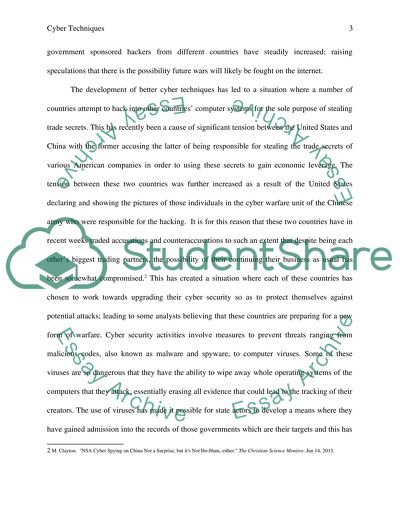Cite this document
(“Developmebts in cyber techniques have tended to contribute to greater Essay”, n.d.)
Retrieved from https://studentshare.org/social-science/1648774-developmebts-in-cyber-techniques-have-tended-to-contribute-to-greater-international-tension-and-foreign-policy-conflict-discuss
Retrieved from https://studentshare.org/social-science/1648774-developmebts-in-cyber-techniques-have-tended-to-contribute-to-greater-international-tension-and-foreign-policy-conflict-discuss
(Developmebts in Cyber Techniques Have Tended to Contribute to Greater Essay)
https://studentshare.org/social-science/1648774-developmebts-in-cyber-techniques-have-tended-to-contribute-to-greater-international-tension-and-foreign-policy-conflict-discuss.
https://studentshare.org/social-science/1648774-developmebts-in-cyber-techniques-have-tended-to-contribute-to-greater-international-tension-and-foreign-policy-conflict-discuss.
“Developmebts in Cyber Techniques Have Tended to Contribute to Greater Essay”, n.d. https://studentshare.org/social-science/1648774-developmebts-in-cyber-techniques-have-tended-to-contribute-to-greater-international-tension-and-foreign-policy-conflict-discuss.


